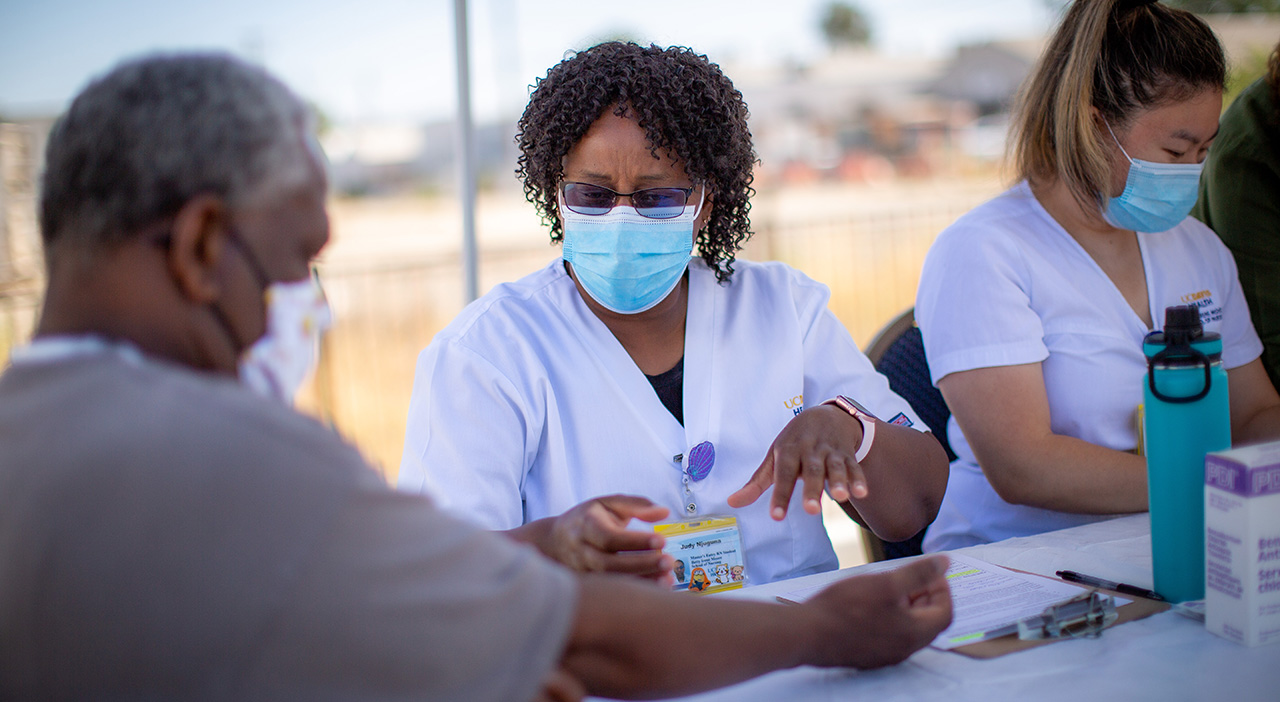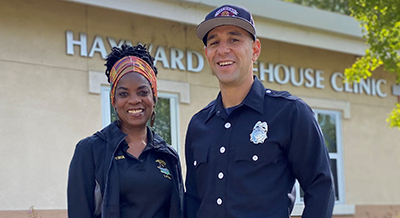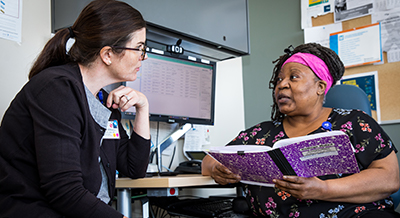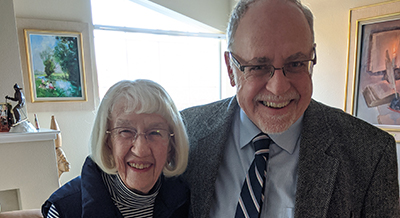Throughout the pandemic, many people skipped routine preventive care and screenings out of fear of COVID-19 exposure. Others lacked convenient access to receive the COVID-19 vaccines that could save their lives.
So, entry-level nursing students from the Betty Irene Moore School of Nursing at UC Davis stepped up to ensure people got the care they needed.
When administrators at Sacramento Employment and Training Agency (SETA) Head Start wanted to ensure their staff were keeping up on annual tuberculosis (TB) screenings, they tapped into a partnership with the School of Nursing and its second-year nursing students.
Located in Del Paso Heights, SETA Head Start provides low-income children with quality comprehensive child development services that are family focused, including education, health, nutrition and mental health.
Future registered nurses in their fifth quarter of an 18-month accelerated program administered and read the results of TB tests for more than 75 of the organization’s staff.
“The goal of our Fostering Healthy Communities course is to combine nursing theory and clinical care with an emphasis on working with diverse communities in providing health promotion and chronic disease management,” says Shana Ruggenberg, director of the Master’s Entry Program in Nursing (M.E.P.N.). “This experience offers a tangible opportunity to put classroom and lab experience into real practice.”
Students develop their motor skills and learn how to administer an intradermal injection. But the lesson goes far beyond that.
“We learn about these readings in theory, read about it in the textbooks but now we’re out seeing it in person. This brings the school to life,” explains graduate Judy Njuguna. “I think this is where we practice the most important aspect of nursing — getting to interact with people. We can pretend to do that in a simulation by talking to a patient simulator or having another student pretend to be a patient. But this is real — we’re using real interpersonal skills,” adds graduate Ju-A Son.
Students also developed those skills for teenagers and families at pop-up vaccine clinics at high schools, low-income apartment complexes and grocery stores throughout Sacramento. The vaccination initiative was led by dedicated volunteers and included nursing students, along with UC Davis School of Medicine students, faculty members and other employees determined to increase immunization rates in areas where unvaccinated residents often lack factual information about COVID-19.
“I feel very good about being part of this effort and I’m glad to be here,” says Elizabeth Ruiz, a student who volunteered at numerous clinics. “Every opportunity that comes up, I’m there to sign up because we need to get people vaccinated… and I love what UC Davis is doing.”
These encounters support the nursing program’s goal of exposing students to population-based health promotion and disease prevention strategies with diverse individuals, families, communities and populations. The critical thinking, clinical excellence and a deep understanding of the health care system that graduates gain enable them to flourish. Programs and experiences such as this prepare students to advance health locally, nationally, and globally in ways that address inequities, big and small, that stand in the way of optimal health and health care equity for all.
“These experiences also showed students the challenges and barriers to providing health care in under-resourced community areas,” Ruggenberg explains.
The face-to-face encounters also presented teachable moments from the students that a classroom cannot.
“I grew up in this area, but I didn’t even know SETA was here,” says graduate Kou Her. “This was really eye-opening for me to learn what is in my own neighborhood. It’s just a great experience to hands-on serve my community.”






